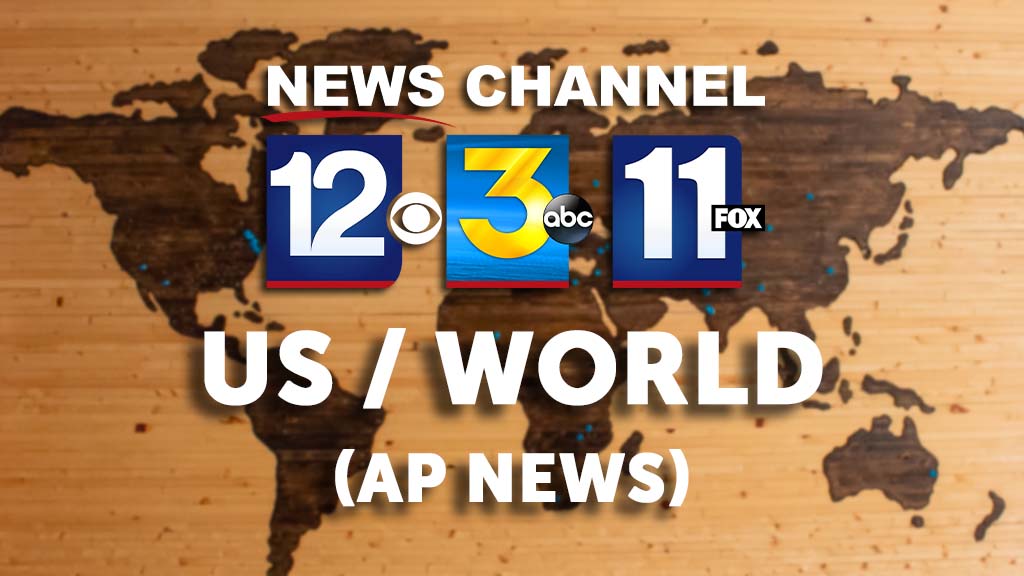Utah lawmakers want voters to give them the power to change ballot measures once they’ve passed

Associated Press
SALT LAKE CITY (AP) — Utah’s Republican-controlled Legislature will ask voters in November to relinquish some of their rights to lawmakers who want the ability to change state ballot measures after they’ve passed.
Frustrated by a recent state Supreme Court ruling, lawmakers called a special session Wednesday in which both chambers swiftly approved an amendment to Utah’s constitution that would grant them greater power over citizen initiatives. The Legislature used its broadly worded emergency powers to hold the session.
If a majority of Utah voters approves the amendment this fall, it would give lawmakers constitutional authority to significantly rewrite voter-approved ballot measures or repeal them entirely.
Democrats decried the decision as a “power grab,” while Republicans argued it would be dangerous to have certain laws on the books that cannot be substantially changed. The proposal would let lawmakers apply their new power to initiatives from past election cycles.
“We’re asking our constituents to turn over more power to us,” said state Sen. Nate Blouin, a Millcreek Democrat. “We are patronizing our constituents. We’re telling them that we know better while feeding them a spoonful of sugar to make it go down easier.”
He pointed to how Republicans are trying to sweeten the deal for voters by tying the amendment’s success to other election reforms. For example, deadline extensions that might make it easier to place a voter referendum on the ballot will only pass if the amendment does, too.
State Sen. Kirk Cullimore, a Draper Republican and a sponsor of the proposal, said during floor debate that a recent state Supreme Court ruling in a redistricting case has effectively turned ballot initiatives into “super laws” that are not subject to the same revisions as laws passed by the Legislature.
Utah voters approved a ballot measure in 2018 that created an independent commission to redraw voting districts each decade and send recommendations to the Legislature, which could approve those maps or draw their own. The measure also prohibited drawing district lines to protect incumbents or to favor a political party — language the Legislature tried to strip out and replace with looser provisions in 2020.
Voting rights groups sued after lawmakers ignored a congressional map drawn by the commission and passed one of their own that split liberal Salt Lake County among four congressional districts, which have all since elected Republicans by wide margins.
Last month, all five Republican-appointed state Supreme Court justices sided with plaintiffs who argued the GOP supermajority had overstepped its authority and undermined voters when it altered the ballot initiative that banned partisan gerrymandering. The court found that lawmakers do not currently have the authority to change laws approved through citizen initiatives except to reinforce them without impairing them, or to advance a compelling government interest.
Now, the Legislature is attempting to circumvent that ruling by expanding its constitutional authority over voters — but voters themselves will have the final say.
Utah isn’t the only place where lawmakers have sought the power to undo certain ballot measures. Changes to the political mapmaking process have been the impetus for such efforts in multiple states.
Missouri voters approved a redistricting process in 2018 intended to create “partisan fairness” in voting districts. Lawmakers promptly placed a new amendment on the ballot to undo some of the key elements, and voters agreed to the new version in 2020.
In 2022, Arizona lawmakers placed on the ballot a proposal that would allow them to amend or repeal entire voter-approved measures if any portion of them is found unconstitutional or illegal by the state or federal Supreme Court. Voters defeated it.
This year, an advocacy group has won a spot on the ballot in Ohio for a measure that would appoint a new commission to draw legislative and congressional maps. State Attorney General Dave Yost, a Republican, objected twice to the ballot measure language.
A lower court in Utah also will revisit the process for redrawing the state’s congressional districts following the Supreme Court ruling, but the current boundaries will remain for this election cycle.
